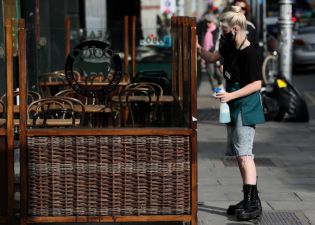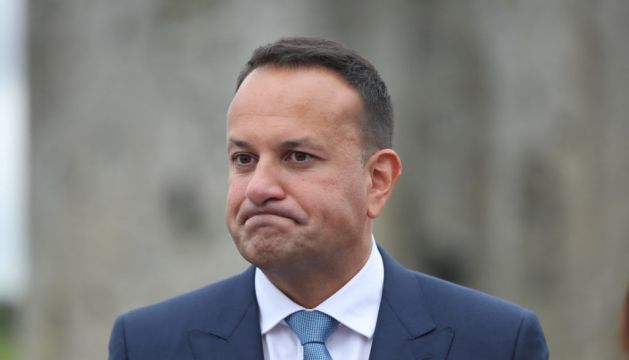The Tánaiste has warned the number of new Covid cases in the coming weeks will break all records.
A new 8pm curfew on hospitality comes into effect from Monday along with caps on attendance at indoor and outdoor activities.
There will be an exemption for weddings which will be capped at 100 attendees; and further exemptions for hotel residents.
It is expected cases will continue to fall over the coming days before spiking in the weeks ahead.
Tánaiste Leo Varadkar says he expects the situation to deteriorate quickly.
"Based on what we can now see happening in London, Denmark, Norway, South Africa and elsewhere, the Omicron wave is going to come hard and fast," Mr Varadkar said.
"The cases will break all records, perhaps as soon as next week, and after that hospitalisations will start rising again, ICU and critical care will be under real pressure, GP surgeries may be overwhelmed or come close to it."
'Delicately balanced'
Meanwhile, the chief medical officer has described Ireland's epidemiological situation as "concerning and delicately balanced" despite "a recent reduction in the number of confirmed cases in hospital and ICU".
In a letter to the Minister for Health Stephen Donnelly, Dr Tony Holohan said international data from South Africa, Denmark and the UK suggests the Omicron variant could lead to a rapid increase in case numbers as it takes hold in the State.
"While we know that Omicron spreads rapidly, and that this is probably due both to its ability to evade the immunity conferred by vaccination and prior infection and being intrinsically more transmissible, we do not know the relative contribution of these two mechanisms," Dr Holohan wrote.
Projections from the National Public Health Emergency Team (Nphet) suggest that as Omicron becomes dominant in Ireland, "which is likely to happen over the coming week", a surge in case numbers is likely, particularly when increased socialisation over the Christmas period is taken into account.
Modelling

The CMO explains the peak of these infections could lead to between 2-5 per cent of the country's population becoming infected with the virus, while between 6-25 per cent of the population could be close contacts.
In the letter penned following Nphet's meeting on Thursday, Dr Holohan explains optimistic modelling shows daily cases number reaching 8,000-10,000, while a pessimistic scenario increases case numbers to over 20,000 per day. This could see over 2,000 people with the virus requiring hospital care at the wave's peak, the group believe.
The letter confirms Nphet recommended a 5pm closing time for the hospitality industry, however, the Government rejected this, going instead with the later time of 8pm.
The other recommendations made in the letter, including changes to the rules for close contacts and a limit on the number of people permitted at events, were agreed by ministers and will take effect at midnight on Sunday, lasting until January 30th.







